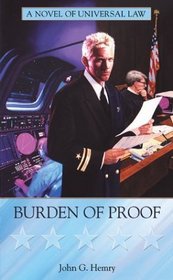Another review on this book's page and some in Amazon reflect other readers' dislike with the legal aspects of this sci-fi series. Well, that's understandable, as we all have different tastes. I remember reading somewhere that if we all liked the same thing, there would only be one book on the shelf.
Personally, I found this book to be a page turner. Why? Well, as a former military officer myself, not only did I often participate in court-martials in some respect, but I also occasionally sat on them as a member of the board. So I wasn't bored by all the legal procedures in the book.
Personally, I found this book to be a page turner. Why? Well, as a former military officer myself, not only did I often participate in court-martials in some respect, but I also occasionally sat on them as a member of the board. So I wasn't bored by all the legal procedures in the book.
Sinclair must prove a dead buddy innocent and a live officer guilty, all the while meeting his girlfriends hostile father, who happens to be a Captain AND leading the investigation about the dead buddy.
Once again, the main plot doesn't start happening until almost halfway through the book. I can understand that for the first book, but now that we know the routine of the ship and who is who, why the long wait? And a lawyer would enjoy the spelled out legal proceedings more than most casual scifi fans. So who is Hemry writing for?
I can understand why he wrote the "Lost Fleet" series under a pseudonym cause otherwise no one would have given it a chance after this series.
Once again, the main plot doesn't start happening until almost halfway through the book. I can understand that for the first book, but now that we know the routine of the ship and who is who, why the long wait? And a lawyer would enjoy the spelled out legal proceedings more than most casual scifi fans. So who is Hemry writing for?
I can understand why he wrote the "Lost Fleet" series under a pseudonym cause otherwise no one would have given it a chance after this series.




